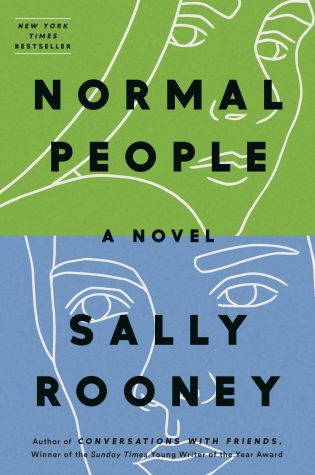Birth control: A hostage to be freed
February 25, 2016
I received my first prescription of birth control pills when I was 14 years old. At 22, I have experimented with three different types of hormonal birth control over the course of eight years and have been to more clinic appointments than I can count. Let’s just say that a dwindling pack of birth control pills has become the symbol of a bitter countdown to another hellish doctor’s appointment that involves dreaded pelvic exams and hours spent in crowded clinic waiting rooms.
Thanks to a new California law that will make hormonal birth control available at pharmacies without a doctor’s prescription, those time-consuming, uncomfortable clinic visits will be a thing of the past for women of all ages.
Introduced initially on February 2013 by Dr. Ed Hernandez, California state senator from District 22, Senate Bill 493 grants pharmacists the authority to act as health care providers. Governor Jerry Brown signed the bill into law on October 2013, but state regulations delayed implementation, according to the American Pharmacists Association.
California is the second state after Oregon, implemented on Jan. 1, to allow birth control to be obtained without a doctor’s prescription. Contraceptives are the only provision of the new law, but it has captured the most media attention and has received an outpour of support.
Hernandez explained to The American Pharmacists Association in March 2014, that the Affordable Care Act created a “huge need” for primary care providers. The “series of scope of practice bills,” including SB 493, was created to address that need. Hernandez told The Press-Enterprise, that other states that had adopted similar laws had seen improved access to health care.
The law will allow pharmacists to prescribe self-administered birth control methods, such as pills, patches, vaginal rings and injections.
A common misconception about the law is that the birth control will be offered “over-the-counter.” Contraceptives will still require a prescription from a pharmacist, so it isn’t quite as simple as buying aspirin.
Regardless, it’s progress. The fact that women now have a choice about where to get their birth control is something to be celebrated. I am personally looking forward to living in a world where hair spray, mascara and my latest refill can be purchased at the same counter, where birth control is no longer held hostage and instead is available on well-stocked pharmacy shelves. It’s equality disguised as luxury, but nevertheless a step in the right direction.
Birth control made more accessible sends a positive message that women’s sexual health is a priority. But shouldn’t it have always been that way? Many women have supported more accessible birth control for decades. Of 2,000 women asked about their thoughts on over-the-counter birth control by Ibis Reproductive Health in 2013, 31 percent were in favor, according to Reuters Health.
Thanks to the new law, women can obtain contraception almost as easily as they would receive a walk-in flu shot, and this convenience is something hundreds of women have looked forward to. To be able to reject a visit to the doctor is progress for those of us who simply don’t have the time or access to a clinic on a monthly regular basis.
Unlike Oregon’s law, California law will not impose any age regulations, which is important, because studies show that preteens and young teenagers are sexually active. In California, there were 30,819 births to women under age 20 in 2013, according to the U.S. Department of Health and Human Services. A study in the Journal of Public Health revealed that out of 6.6 million pregnancies that occurred in 2008, 51 percent were unintended.
As outlined by the Board of Pharmacy, with the new law, women will only have to complete a twenty-question health assessment, have their blood pressure taken and receive counseling and information about the contraceptive before they can walk out with a prescription.
Some health care professionals argue that routine check-ups monitor contraceptive side effects and are proactive health measures that can detect cervical cancer and other health issues early-on.
“Routine visits with a healthcare provider can help prevent illness and can find problems that need treatment,” according to Planned Parenthood Federation of America. “Pelvic exams, pap tests and screenings for breast cancer are all vital health care needs for women.”
I agree that thorough examinations should not be forsaken in the name of convenience, however this should be the individual woman’s initiative. We are capable enough of taking care of our own bodies. We don’t need doctors to hold contraceptives over our heads in order to lure us to the exam room.
For years, male condoms have been handed out free by the dozens in every size, shape and variety, while women’s contraceptives have been obscured behind conditions and regulations.
According to Reuters Health, one third of 1,200 U.S. doctors surveyed required women to have a pelvic exam before writing them a prescription, even though research shows that they are unnecessary.
“There is no established medical need for women to have the exam before receiving a prescription for birth control pills,” Dr. George F. Sawaya, a researcher of the study told Reuters Health.
Concerning? It should be.
Mother Jones reporter Stephanie Mencimer said, “Doctors regularly hold women’s birth control prescriptions hostage…Forcing them to come in for exams that research is increasingly showing are too frequent and often unnecessary and ineffective.”
Some have argued that there is still work to be done in order to make birth control fully accessible. “Requiring a pharmacist to prescribe and dispense oral contraceptives only replaces one barrier — a physician’s prescription — with another,” said Dr. Mark S. DeFrancesco, president of the American Congress of Obstetricians and Gynecologists in a Jan. 4 statement.
This law is about more than just convenient birth control. By liberating contraceptives from the control of doctors and letting women take charge of their own health decisions, pharmacy birth control will set a new standard for healthcare equality in California.

















